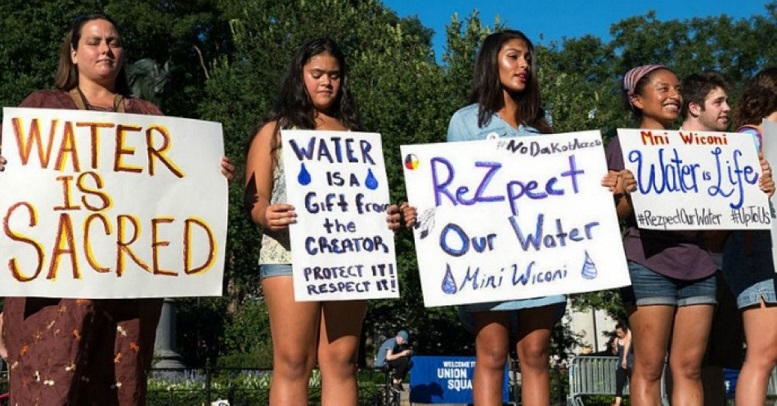Energy Transfer Partners LP (NYSE:$ETP), which owns about 38.2% of the Dakota Access Pipeline, is filing a lawsuit against Greenpeace and other similar environmental activism groups. The Dakota Access Pipeline garnered global attention when Native American tribes in the Dakotas protested against the pipeline over concerns that it could contaminate the people’s water supply. The lawsuit claims that Greenpeace and other activists had broken laws under the Racketeer Influenced and Corrupt Organizations Act (RICO Act). Energy Transfers says that Greenpeace and other similar groups had broken these laws by organizing eco-terrorism protests, racketeering, and other related crimes.
Energy Transfers is the second company to be filing lawsuits against Greenpeace citing violation against the RICO Act. The first company had been a Canadian logging company named Resolute Forest Products (TSE:$RFP). Resolute had filed the RICO lawsuit against Greenpeace after the environmental advocacy group launched a multimedia campaign to protest against Resolute’s plans to harvest trees from boreal forests. Both Energy Transfers and Resolute are to be represented by the law firm Kasowitz, Benson & Torres LLP (traded privately). Both lawsuits are filed against the U.S. chapter of Greenpeace as well as the international organization called Greenpeace International.
Responding to the lawsuit, Greenpeace defended its activism, saying that the companies are setting up its lawyers to abuse the legal system in order to quiet the organization’s legitimate advocacy work. “This is the second consecutive year Donald Trump’s go-to attorneys at the Kasowitz law firm have filed a merit-less lawsuit against Greenpeace,” Tom Wetterer, general counsel for Greenpeace USA, said. He then noted that Energy Transfer’s claims against Greenpeace were similar to that of the claims made by Resolute through the Kasowitz firm. According to Greenpeace USA spokesperson Rodrigo Estrada, the organization has yet to been served the papers of the lawsuit.
The recent election of Donald Trump as the U.S. president has breathed life back into the Dakota Access Pipeline – a project that had been temporarily halted by the Obama administration. Obama had decided to shut down construction and urged the companies behind the pipeline to look at alternate routes after months of protests from various Native American tribes, including the Standing Rock Sioux tribe. The Native Americans said that the pipeline would have contaminated the people’s drinking water and damaged sacred Native American burial and/or archaeological sites. The recent election of Trump has reversed all the work that had been done by the Native American tribes after Trump lifted the halting of the project through an executive order just four days after assuming office.
Now, Energy Transfers Partners is accusing those who protested against its pipeline project to have faked the coordinates where Native American cultural and religious objects were said to be located. The oil company said that the environmental activists and groups had purposely made the coordinates match that of the planned pipeline route. It also claimed that Greenpeace and other similar advocacy groups falsely said that the Dakota Access Pipeline had trespassed onto tribal treaty land.
Amongst the charges that Energy Transfers Partners is trying to pin against Greenpeace and other environmental advocacy groups, perhaps the most outrageous claim was that some of these groups – Earth First! and Red Warrior Camp, specifically – had violated the U.S. Patriot Act. Energy Transfers Partners said that these two environmental advocacy groups had broken laws under the U.S. Patriot Act by purposely disrupting the construction of the pipeline. The oil company claimed that these acts were serious terrorist threats.
The environmental groups are also being accused of starting campaigns against the pipeline for personal company gains. According to Energy Transfers Partners, the campaigns were made to trick people to make donations and grants. The oil company also said that the campaigns had damaged its relationships with its investors and banks.
Featured Image: twitter










